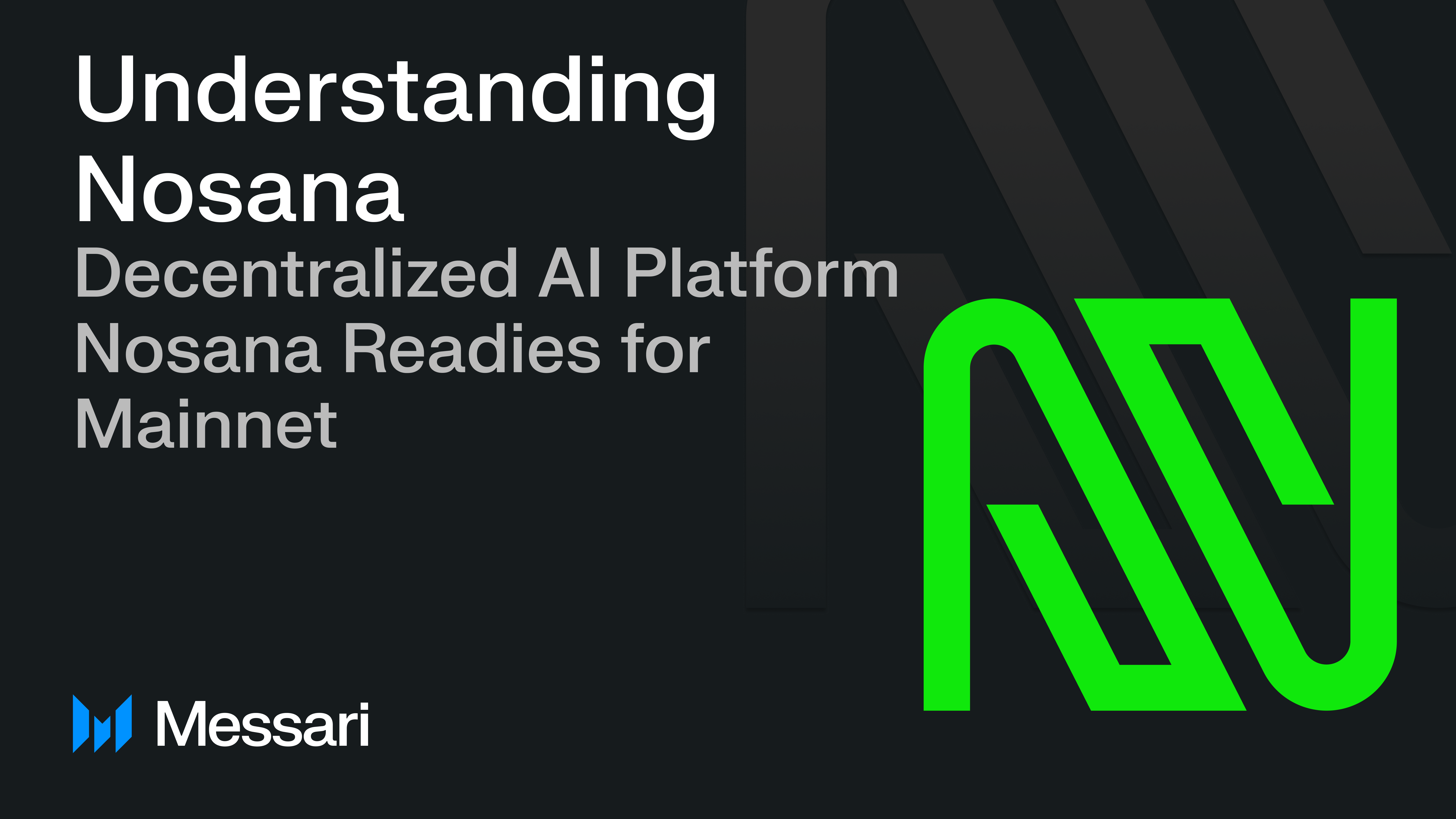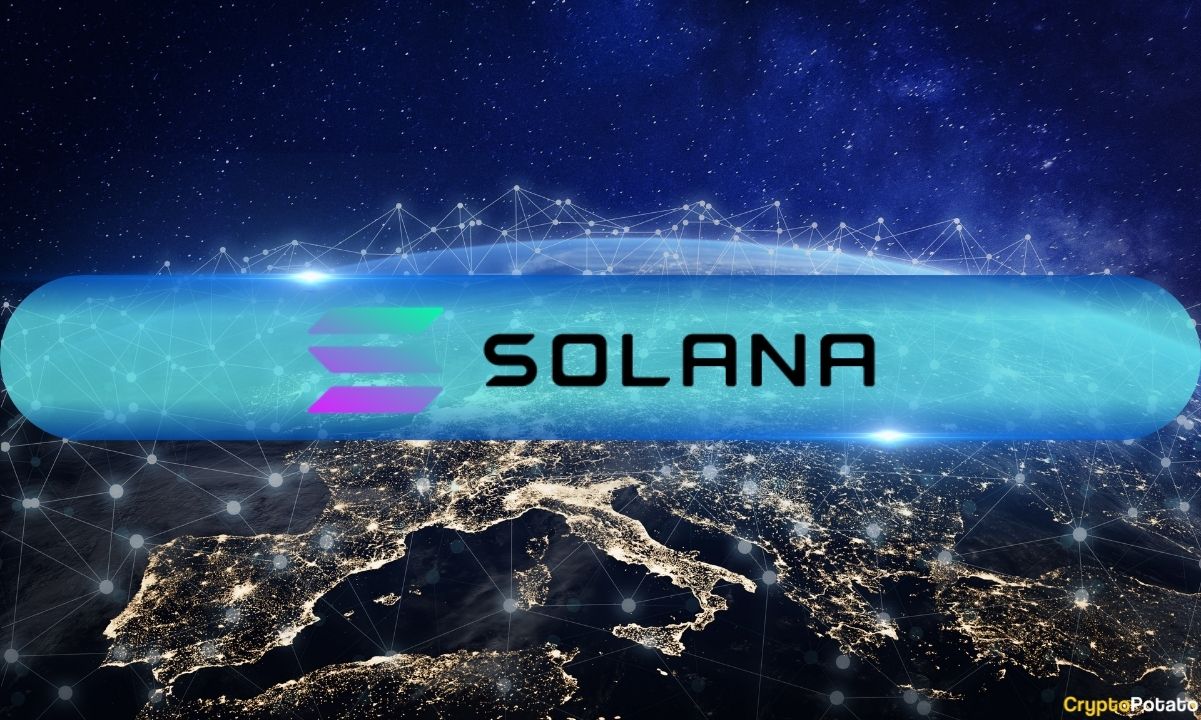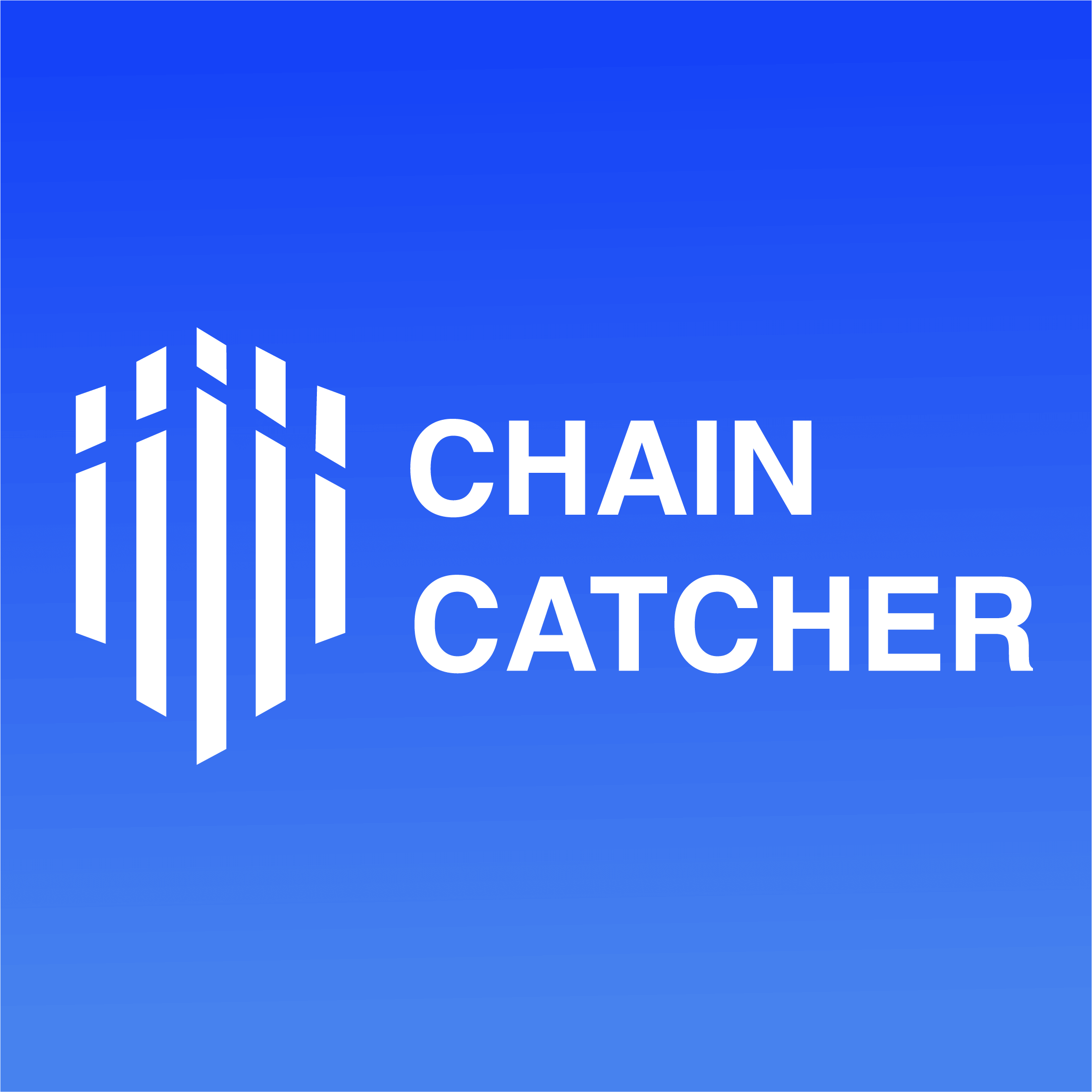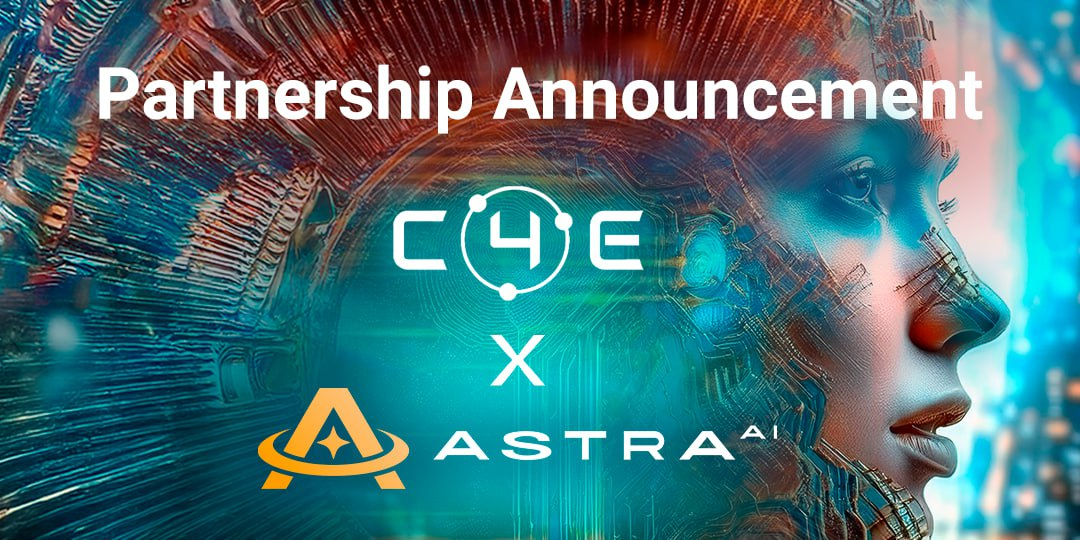Latest DePIN AI News
View AI Projects
a year ago
GoldRush Launches Blockchain Data APIs on Google Cloud Marketplace
In the rapidly evolving world of blockchain and web3, accessing reliable, structured data is crucial for innovation. The recent launch of GoldRush Blockchain Data APIs on Google Cloud Marketplace provides developers with essential resources that streamline development processes. This integration enhances AI capabilities and alleviates the challenges of managing multiple data sources, ultimately transforming workflows and driving the future of blockchain and AI applications.
GoldRush offers a suite of tools designed to simplify web3 development, including token balances, transaction histories, event logs, and NFT metadata, all accessible via APIs, SDKs, and UI Kits. These resources cater to foundational use cases like wallets and crypto tax tools, while also enabling advanced applications such as on-chain verification and regulatory compliance. By structuring blockchain data, GoldRush enhances reliability and usability, making it valuable for both crypto-native developers and enterprises exploring blockchain technology for the first time.
The integration with Google Cloud's AI tools, such as Vertex AI, allows developers to create innovative applications like NFT management tools, predictive models for token performance, and fraud detection systems. This ecosystem reduces technical overhead, enabling developers to focus on innovation. Additionally, streamlined billing and enhanced security simplify expense management, making cloud-based development more efficient. By listing on Google Cloud Marketplace, GoldRush expands its reach to a wider audience, from agile web3 startups to established Fortune 500 companies, serving as a critical enabler for AI model training and decision-making processes in the blockchain space.

a year ago
Nosana's Decentralized GPU Compute Grid: A Game Changer for AI Inference
Nosana is making significant strides in the decentralized computing landscape with its innovative GPU-based compute grid designed specifically for AI inference tasks. By leveraging underutilized consumer-grade GPUs, Nosana offers a cost-effective alternative to traditional cloud providers, boasting savings of up to 2.5 times. In 2024 alone, the network completed 985,000 jobs, driven by a surge in demand following the onboarding of 1,000 new nodes. With 29.7 million NOS tokens staked, valued at approximately $92.4 million, the project is gearing up for its mainnet launch scheduled for Q1 2025, which will fully operationalize its GPU compute grid.
Initially launched in 2021 to provide decentralized automation services for developers, Nosana pivoted towards AI inference in response to the explosive growth in AI demand post-ChatGPT. This strategic shift was motivated by the realization that the need for AI computational resources was outpacing supply, leading to high costs. By creating a marketplace where individuals can rent out their idle GPU power, Nosana not only addresses this demand but also allows GPU owners to earn passive income. The project’s focus on AI inference positions it uniquely in the decentralized computing sector, aiming to provide accessible and affordable resources for AI developers and researchers.
Nosana's ecosystem is further strengthened by partnerships with various organizations, enhancing its GPU marketplace's capabilities. Collaborations with companies like Matrix One and PiKNiK illustrate the versatility of Nosana's network in handling diverse computational tasks. As the project prepares for its mainnet launch, the NOS token will play a crucial role in facilitating transactions and governance within the network. With a dynamic staking rewards system in place, Nosana is poised to attract and retain node operators, ensuring the sustainability and growth of its decentralized compute grid in the competitive AI landscape.

a year ago
DePIN Projects Surge Amid AI Growth and Market Opportunities
Decentralized Physical Infrastructure Networks (DePIN) have witnessed remarkable growth over the past year, significantly outpacing the broader crypto market, which itself doubled in 2024. This surge can largely be attributed to the increasing prominence of artificial intelligence (AI) on a global scale. Despite this rapid expansion, DePIN currently captures less than 0.1% of its potential addressable market, which exceeds $1 trillion. As decentralized networks continue to outperform centralized corporations by offering faster and more reliable services, projections suggest that DePIN could grow between 100 to 1000 times in the next decade, according to a recent report by Messari.
The competitive landscape of DePIN is intensifying, particularly with the rise of Solana and Base, which have been gaining market share. Interoperability solutions such as Wormhole and LayerZero are facilitating multi-chain strategies for DePIN projects, thereby expanding their user bases while also fragmenting liquidity. Messari notes that Solana's focus on latency has attracted innovators at the infrastructure level, while Coinbase's strong brand has drawn consumer-focused founders to Base. Early-stage venture capitalists are heavily investing in DePIN, with pre-seed and seed funding surpassing Series A rounds, indicating a robust interest in this sector.
Looking ahead, DePIN is poised for further growth, especially in 2025, as regulatory clarity may remove significant barriers for investors and innovators. Pantera Capital and Grayscale Research have both highlighted DePIN as a critical focus area, with the latter including it in its Top 20 crypto investment list. Additionally, local governments are increasingly utilizing DePIN to tackle infrastructure challenges, such as enhancing AI sovereignty in Tanzania and addressing the digital divide in Mexico, which not only resonates with voters but also aids in securing electoral victories.

a year ago
StackOS Rebrands to StackAI, Launches New Token for AI Agent Economy
In recent months, StackOS has officially rebranded to StackAI, marking a significant shift in its product offerings. Along with the name change, the token ticker has been updated from $STACK to $STACKAI, with trading set to commence on January 13 following a successful Token Generation Event (TGE). StackAI aims to establish itself as a foundational computing infrastructure for the burgeoning AI agent economy, which experts predict will see AI agents outnumbering humans within the next five years. This growth is expected to be exponential, necessitating scalable and on-demand compute resources, an area where StackAI is poised to excel.
One of the key advantages of StackAI over traditional centralized providers is its limitless scalability. The platform eliminates the need for conventional Know Your Customer (KYC) processes and lengthy setup times, making it more accessible for users. Additionally, StackAI's cost structure is highly competitive, offering flexible payment options such as per-second or per-minute billing. These features position StackAI as a superior alternative to established cloud service providers like AWS and Akash, catering to the needs of users seeking efficient and cost-effective solutions.
Another innovative aspect of StackAI is its natural language-based deployment capabilities. This feature allows both humans and AI agents to deploy software and computing infrastructure using simple text or voice commands, integrated with wallet functionality. This streamlined approach significantly accelerates the deployment process, enhancing accessibility for users. With its advanced technology and unique offerings, StackAI is well-prepared to meet the rising demand for fast, interoperable, and cost-efficient computing in the AI agent economy, ready to tackle the challenges of this transformative era.

a year ago
Züs Community Unveils Exciting Plans for 2025
As we welcome the New Year, the Züs Community is excited to share our roadmap for 2025, focusing on enhancing user experience and adoption. We are set to launch both mobile and desktop applications for Vult, aimed at providing a seamless user experience. Additionally, users can now log in using their Google accounts, simplifying access to our platform. In the second quarter, we will introduce mobile streaming capabilities and a Split-Key Technology that enhances security by distributing user keys across devices, ensuring data protection even if one device is compromised. By the third quarter, we aim to roll out fully decentralized live streaming, allowing creators to broadcast securely to their audiences in a private setting.
In line with our commitment to innovation, we are actively pursuing partnerships with AI projects to provide scalable storage solutions. By integrating with leading AI technologies, Züs is positioning itself as a premier platform for secure and efficient data storage in the rapidly evolving AI landscape. This strategic move not only enhances our service offerings but also aligns with the growing demand for robust data management solutions in the tech industry. We are excited about the developments on the horizon and encourage our community to stay tuned for more updates.
Furthermore, we are proud to announce that Züs has been recognized in the annual DePIN report by Binance Research, a significant achievement given Binance's stature in the crypto space. This acknowledgment underscores our growing reputation as a trusted storage solution within the Web3 ecosystem. We appreciate the continued support from our community and look forward to a year filled with growth, innovation, and exciting developments for Züs. Together, let's make 2025 a landmark year for our platform!

a year ago
Exciting Developments in DePIN AI Agent and $SENTAI Token Launch
In a recent post on the X platform, Shaw, co-founder of ai16z, expressed enthusiasm for the DePIN AI Agent concept, highlighting its intriguing potential despite being in the early stages of development. Shaw's remarks underscore the growing interest in decentralized AI solutions, particularly those that leverage blockchain technology. He also mentioned that projects utilizing Eliza on the IoTeX chain are encouraged to reach out for priority integration, indicating a strategic push to foster innovation in this space. Furthermore, ai16z is establishing grants to support the advancement of the DePIN AI Agent, signaling a commitment to nurturing promising projects.
The launch of BINOAI, the world's first DePIN AI Agent powered by Eliza OS and the IoTeX network, marks a significant milestone in this domain. The introduction of the $SENTAI token has generated considerable excitement, with a remarkable 24-hour trading volume of $63 million, positioning it as the third most traded token on the Solana chain. This rapid adoption illustrates the market's eagerness for innovative blockchain applications and the potential for substantial financial activity surrounding new tokens. Notably, on-chain data revealed that an address associated with Shaw purchased 8.5 million $SENTAI for 996 SOL, further indicating his confidence in the project.
As the blockchain landscape continues to evolve, ChainCatcher advises readers to approach these developments with a rational mindset. It is crucial to enhance risk awareness and exercise caution regarding virtual token issuances and speculative activities. The information provided on this platform serves as market insights and opinions rather than investment advice, emphasizing the importance of due diligence in the rapidly changing world of blockchain technology.

a year ago
IoTeX Partners with Eliza Labs to Advance Physical AI
Provider of modular infrastructure for decentralized physical infrastructure network (DePIN) projects, IoTeX announced a partnership with Eliza Labs to empower autonomous AI agents with the ability to perceive and interact with the physical world through DePIN networks. This collaboration aims to bridge the gap between digital intelligence and real-world sensory input and interaction, accelerating the development of sentient AI.
The partnership combines IoTeX’s DePIN infrastructure with ElizaOS, enabling AI agents to utilize real-time data and services from DePIN networks while controlling physical devices within decentralized environments. By integrating sensory input and actuation capabilities, the collaboration will transform AI agents into context-aware, adaptive entities capable of interacting with the physical world. IoTeX’s DePIN ecosystem, including Nubila and GeodNet, will provide crucial real-time atmospheric and geospatial data, while Pebble Tracker will collect verifiable real-world data like GPS, temperature, and motion.
The collaboration also focuses on advancing Physical AI through key areas of collaboration, including the integration of the DePIN Plugin for Eliza OS. This plugin will allow Eliza agents to access and process real-world data from IoTeX’s DePIN networks, enhancing their perception, action, and learning capabilities. The creation of the first DePIN-aware AI Agent, BINOAI, powered by Eliza OS and IoTeX, will demonstrate real-world perception and interaction, marking a significant milestone in the evolution of Physical AI. Additionally, the partnership aims to enhance agent contextual awareness with DePIN data and services, enabling predictive capabilities and adaptive behaviors based on historical and real-time data.
Furthermore, the collaboration will empower developers by providing early access to IoTeX’s modular DePIN tools through Eliza Labs’ Agent Dev School. This initiative includes workshops, tutorials, and technical resources to assist developers in integrating DePIN functionalities into AI agent workflows.

a year ago
io.net and Alpha Network Partner to Advance AI and Web3 dApps
The DePIN project io.net has recently announced a strategic partnership with Alpha Network aimed at enhancing the development and deployment of artificial intelligence (AI) and Web3 decentralized applications (dApps). This collaboration seeks to create a secure and private environment for AI applications, allowing developers to build powerful, privacy-focused decentralized solutions. By integrating Alpha Network's advanced data privacy technology with io.net's decentralized GPU infrastructure, the partnership is set to empower developers to create AI-driven dApps with improved privacy and security features, which are crucial for the wider adoption of Web3 technologies.
The technological integration between io.net and Alpha Network is expected to facilitate the scalable and cost-effective operation of AI applications. By utilizing io.net's decentralized GPU resources, developers will have access to the necessary computing power without the constraints of centralized servers. Additionally, Alpha Network's data privacy capabilities will ensure that user data remains secure, addressing a critical concern in today's digital landscape. This partnership is particularly significant as the demand for AI and Web3 applications continues to grow, highlighting the need for solutions that prioritize both security and efficiency in application development.
This collaboration not only underscores the increasing convergence of AI, blockchain, and data privacy but also sets the stage for the development of more powerful, secure, and user-centric dApps. As the decentralized ecosystem evolves, partnerships like this could lead to innovations that are more secure and privacy-focused, ultimately paving the way for broader adoption of decentralized technologies. The success of this partnership could have profound implications for the Web3 and AI industries, potentially shaping the future landscape of decentralized applications and their integration into everyday digital experiences.

a year ago
C4E Partners with AstraAI to Drive Innovation in Decentralized Energy and E-Mobility
C4E is excited to announce a new partnership with AstraAI, a technological and financial ecosystem powered by AI and backed by AstraLabs Inc. This collaboration aims to drive innovation and growth in the decentralized energy and e-mobility sectors. By integrating AI tools and solutions suitable for both Web2 and Web3 ecosystems, C4E and AstraAI are committed to creating smarter energy management systems that foster community participation and enhance overall sustainability.
The partnership will leverage C4E's DePIN L1 Blockchain technology alongside AstraAI's advanced AI capabilities. A key component of this collaboration is the integration of the Spyder Bot, an AI-driven tool designed to enhance community engagement by providing real-time updates and facilitating meaningful interactions. Additionally, C4E will be featured in the AstraAI Partner Hub with the launch of AstraAI App 2.0, which will increase visibility and trust among supporters. This partnership also opens avenues for targeted advertising, reaching over 1 million users in the Web3 space, thus amplifying C4E’s mission and community outreach.
Together, C4E and AstraAI share a vision for a sustainable future in the decentralized energy sector. By merging AI-driven incentives with blockchain technology, they are laying the groundwork for a community-centric approach that promotes passive income opportunities and decentralized contributions. This collaboration not only aims to enhance community ties and influencer relationships but also seeks to push the boundaries of innovation in energy management and e-mobility. C4E looks forward to the exciting possibilities this partnership will bring as they continue to lead in these transformative sectors.

a year ago
Aethir Shifts Focus from Gaming to AI Computing Amid Geopolitical Tensions
Aethir, co-founded in 2022, has recently shifted its focus from cloud gaming to artificial intelligence (AI) computing, as explained by co-founder Mark Rydon during the Consensus Hong Kong event. Initially designed to utilize idle Graphics Processing Units (GPUs) for gaming, Aethir recognized the burgeoning demand for compute power in the AI sector. This pivot comes amid rising geopolitical tensions between the U.S. and China, which have further complicated access to advanced GPU technology. The decentralized nature of Aethir's platform allows it to serve as a marketplace for GPU compute, catering to businesses that require on-demand capacity without the burden of maintaining their own hardware.
The evolution of GPUs from gaming to AI has been significant, with companies like Nvidia leading the charge. Rydon noted that while Aethir started within a gaming context, the enterprise-capable GPU cloud they were developing proved to be highly relevant to AI applications. The AI server industry is projected to be worth $205 billion, showcasing the lucrative potential of this market. Aethir's decentralized approach not only democratizes access to high-performance computing but also addresses the needs of researchers who may lack the resources to invest in their own infrastructure.
However, Aethir's operations are not entirely permissionless. Due to U.S. export controls, the company has implemented geofencing measures to prevent access to its high-performance computing resources from regions like China. Rydon emphasized the importance of regulatory compliance and the necessity of a Web2 layer to manage service agreements and Know Your Customer (KYC) processes. This structured approach is essential for securing significant business deals while navigating the complexities of the current geopolitical landscape.
Signup for latest DePIN news and updates